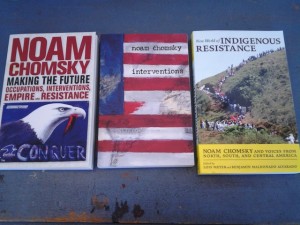President Obama travels to Mexico today to meet with Mexican President Enrique Peña Nieto.
Obama’s visit comes at a time when President Peña Nieto is riding a wave of adulation, especially in international media. Nevertheless, as analyst John Ackerman points out in Foreign Policy this honeymoon effect is unearned and is likely to be short lived because the underlying Mexican realities of widespread violence, rampant corruption, and harsh inequality remain unaddressed.
In today’s Los Angeles Times, Mexican poet and peace activist Javier Sicilia emphasized the need for both presidents to focus on curbing drug war violence. The following piece is reproduced from the Los Angeles Times. Join us next week on a conference call featuring Javier Sicilia and others to hear about the visit and discuss next steps with allies from the Mexican and U.S. peace movement, next Wednesday, May 8 at 12PM Eastern. We will discuss work on weapons trafficking, drug policy reform, and other important topics. RSVP to ted [at] globalexchange [dot] org.
President Obama has much to discuss with Mexico’s new president, Enrique Peña Nieto, when they meet in Mexico City this week. No issue, however, is more urgent than the search for peace, justice and dignity for and between our peoples.
For seven years, Mexico has been living a nightmare. More than 70,000 people, by some estimates, have been killed and thousands more have been disappeared in the wave of criminal and institutional violence of Mexico’s war on drug cartels. The collateral damage is a humanitarian tragedy that requires our leaders to have deep and frank discussions about how to transform the failed policies exacerbating the violence.
Our countries need to work together in prioritizing public health and regulation over a strategy that makes suspected drug offenders into military objectives. The effect of four decades of Mexico’s drug war has been, ironically, to strengthen and enrich the very criminals we oppose. We also need urgent common action to shut down the torrent of guns being smuggled from the United States into Mexico, and into the hands of criminals, at a rate of more than 200,000 a year.
For me these issues are personal and transcend ideology, politics and even nationality. One of the victims of the violence was my 24-year-old son, Juan Francisco. He was an athletic, studious young man with no connections to the criminal world. In March 2011, he was murdered with six friends by cartel hit men.
Why were they killed? Because two of the boys tried to get back some tools stolen from the parking lot of a local gang-run nightclub. My son was enlisted by his friends to help. They were kidnapped, beaten, stripped, spit on, tortured and slowly asphyxiated.
We are certain Obama understands how insidious and dangerous this indiscriminate violence is, and the way American drug laws and gun laws empower it.
When it comes to guns, the consensus in Mexico is broad: Students, workers, elected officials and especially police and soldiers all know they would be safer if the United States effectively cracked down on gun traffickers, instituted background checks for all gun buyers and ended sales of military-style assault weapons.
The hard truth is that weak U.S. gun laws allow for conversion of drug trade profits into contraband weaponry in the hands of the very criminal organizations terrorizing Mexico. Most of these weapons can be legally purchased at any of 8,834 U.S. federally licensed firearms dealers in your border states, as counted by Mayors Against Illegal Guns, and then resold at a profit to a smuggler.
Obama’s initiatives would have made this massive and continuous arming of Mexico’s criminal organizations significantly more difficult. In Mexico, we were deeply disappointed when the U.S. Senate rejected popular, modest and eminently sensible measures to make it slightly harder for criminals, smugglers, the mentally ill and the cartels to get their hands on powerful weapons.
We urge Obama and Peña Nieto to use all their available executive powers to stem the tide of smuggled weapons and to support legislative and electoral efforts to overcome political inertia and roll back the power of the light arms industry and their political front groups like the National Rifle Assn.
But let’s be clear. Presidents are not all-seeing and omnipotent. They need to be supported, nudged, cajoled, convinced, assisted and otherwise pressured to work on the right causes and make good decisions. It is the role of an engaged citizenry to make that happen.
After my son’s death, our Movement for Peace with Justice and Dignity arose. We pushed Mexico’s former president, Felipe Calderon, into a series of public dialogues and directly challenged his militarized approach to fighting the gangs. We mobilized enormous caravans of consolation and hope led by victims of violence. Dozens of buses rolled through Mexico’s worst conflict zones. Yet we knew that to end the killing, drug policy had to evolve. That meant crossing the border.
In August, I embarked on a 35-day, 125-person caravan across the United States. More than 200 U.S. organizations helped us with events in 27 cities focused on guns, money laundering and immigration justice. We underlined the need for the Obama administration to walk its talk of an evidence-based, public health model for drug policy. Yes, work to cut U.S. demand for drugs by devoting more resources to help addicts to recover and young people to make healthy choices. But to effectively shrink the profits of the illegal market, we must also consider regulating widely used recreational drugs.
In November, the citizens of Washington state and Colorado voted to start draining the coffers of criminal drug traffickers by establishing sensible state regulation of marijuana. We hope our leaders are listening.
As our presidents meet, let us wish them clarity and strong heart. We, the people on both sides of the border, will be very attentive.
Join us next week on a conference call featuring Javier Sicilia and others to hear about the visit and discuss next steps with allies from the Mexican and U.S. peace movement, next Wednesday, May 8 at 12PM Eastern. We will discuss work on weapons trafficking, drug policy reform, and other important topics. RSVP to ted [at] globalexchange [dot] org.
 If you’ve never been to Oaxaca during its famous Day of the Dead/Dia de los Muertos celebrations, you really should. Join us as we make our annual pilgrimage to Oaxaca at the end of October. Dating back to the Aztecs, this celebration is a family event to remember departed souls and to celebrate the resurrection of their spirits. In addition, explore Oaxaca’s rich culture through excursions to historical archeological ruins, mezcal palenques and artisan workshops. Meet with local social organizations and indigenous leaders, and learn about fair trade/free trade and globalization in Oaxaca.
If you’ve never been to Oaxaca during its famous Day of the Dead/Dia de los Muertos celebrations, you really should. Join us as we make our annual pilgrimage to Oaxaca at the end of October. Dating back to the Aztecs, this celebration is a family event to remember departed souls and to celebrate the resurrection of their spirits. In addition, explore Oaxaca’s rich culture through excursions to historical archeological ruins, mezcal palenques and artisan workshops. Meet with local social organizations and indigenous leaders, and learn about fair trade/free trade and globalization in Oaxaca.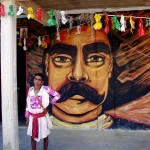 Join Global Exchange as we learn about what has motivated popular movements in Mexico. Examine the recent history of the Chiapas region and hear about challenges facing the struggle for indigenous autonomy. Learn about the direct effects of globalization in the context of NAFTA and the on-going efforts for economic justice and democracy. Dialogue with indigenous peasants who have been working for the right to own the land upon which they live and work, and to govern their communities according to indigenous traditions and customs. We will visit with diverse organizations and their representatives in the area: from religious and community leaders to NGOs and women’s cooperatives, all working for peace and stability in the region. From a base in the colonial town of San Cristóbal de Las Casas, our delegation will travel to surrounding communities to speak with indigenous and campesino organization leaders, activists, educators, students, and artisans.
Join Global Exchange as we learn about what has motivated popular movements in Mexico. Examine the recent history of the Chiapas region and hear about challenges facing the struggle for indigenous autonomy. Learn about the direct effects of globalization in the context of NAFTA and the on-going efforts for economic justice and democracy. Dialogue with indigenous peasants who have been working for the right to own the land upon which they live and work, and to govern their communities according to indigenous traditions and customs. We will visit with diverse organizations and their representatives in the area: from religious and community leaders to NGOs and women’s cooperatives, all working for peace and stability in the region. From a base in the colonial town of San Cristóbal de Las Casas, our delegation will travel to surrounding communities to speak with indigenous and campesino organization leaders, activists, educators, students, and artisans.

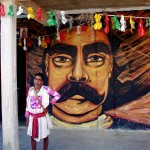
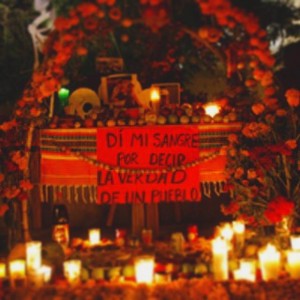
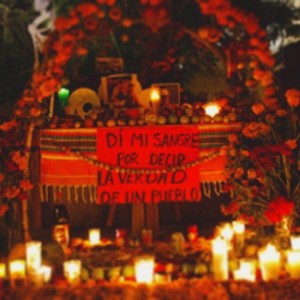



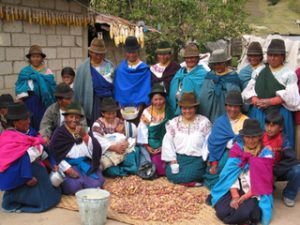
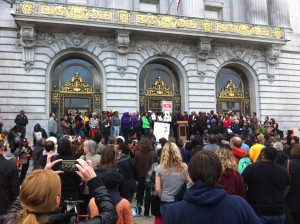
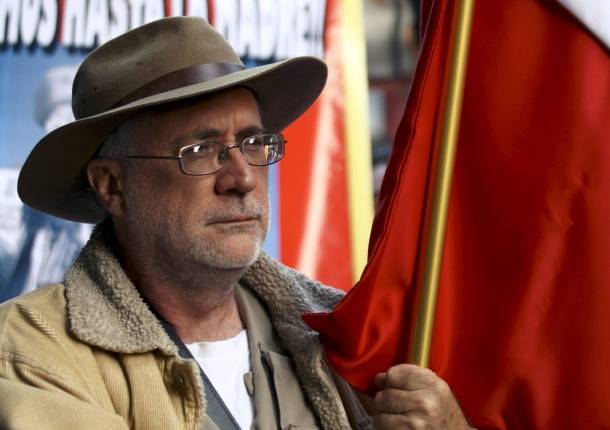
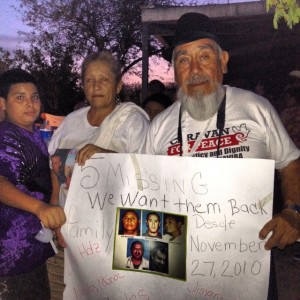
 TAKE ACTION!
TAKE ACTION!

